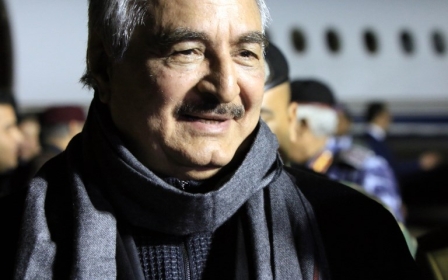France has seen 271 militants return from Iraq, Syria war zones

France has seen 271 militants return from war zones in Iraq and Syria and all of them are subject to investigation by public prosecutors, the country's interior minister said in a newspaper interview.
About 700 French nationals are estimated to have fought in Islamic State (IS) ranks in Iraq and Syria, and like other European countries France has been wrestling with how to handle the flow of so-called returnees.
The number of militants to have returned to France includes 217 adults and 54 minors, with some of them currently in detention, Gerard Collomb said in an interview with Le Journal du Dimanche.
Asked how many French militants had been killed in Iraq and Syria, Collomb told the Sunday newspaper that it was difficult to corroborate information.
The head of France's special forces said in June that his units were directly involved in street battles in the Iraqi city of Mosul but denied they were specifically targeting French-born militants fighting for IS.
France has participated in a US-led coalition battling IS in Iraq, and it also intervened in Mali to push back an Islamist rebellion in the west African state.
French military interventions overseas have exposed it to attack by militants at home. Gunmen and suicide bombers killed 130 people in and around Paris in November 2015, and more than 100 were killed in other attacks in France in the past two-and-a-half years.
Collomb said the threat of militant attacks was "very high," citing two incidents targeting police on Paris's Champs Elysees and seven foiled plots so far this year.
An increasing number of people were being flagged under a preventative monitoring system for radicalised behaviour, with more than 18,500 people reported, he said.
France has been subject to state of emergency legislation, giving police extended powers, since the November 2015 attacks, and the government plans to incorporate some of these measures into ordinary law through a counter-terrorism bill to be put before parliament in the coming months.
Middle East Eye propose une couverture et une analyse indépendantes et incomparables du Moyen-Orient, de l’Afrique du Nord et d’autres régions du monde. Pour en savoir plus sur la reprise de ce contenu et les frais qui s’appliquent, veuillez remplir ce formulaire [en anglais]. Pour en savoir plus sur MEE, cliquez ici [en anglais].




